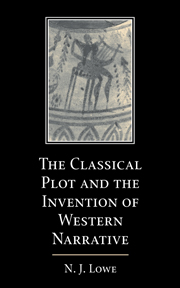8 - Dramatic myth: tragedy and satyr-play
Published online by Cambridge University Press: 22 September 2009
Summary
The significance of early tragedy in the shaping of Western narrative taste is hard to overstate. In the archaic epic tradition, the Iliad and Odyssey were experiments without successors: not merely in their scale, but in the repertoire of techniques they devised to square the circle of strict narrative economy on a monumental scale. Some of those techniques were emulated in a narrower compass in other genres – the longer Homeric hymns, and perhaps the lyric narratives of Stesichorus – but it was only with Attic drama that Homeric plot values were consciously adopted and further extended in a massive and regular outflow of new texts. For Aristotle, it was tragedy even above epic that offered the definitive showcase for the kind of plot values he favoured – and especially, though by no means exclusively, the pioneer work of the fifth-century masters.
Tragedy's historical position here is due, I would argue, to a conjunction of four factors: tragedy's unusual status as an invented medium; the remarkable hegemony of myth in early Greek narrative culture; the close relationship the new narrative form seems to have sought with Homeric epic; and its unprecedented and institutionalised productivity. And the central contention of this chapter is that not only tragedy's most durable innovations in the art of plotting, but many of what we think of as the defining characteristics of fifth-century tragedy, are the product less of ritual, ideological, or sociohistorical factors than of primarily narratological pressures arising from these four circumstances – specifically, from the attempt to adapt what the fifth century admired in Homeric narrative to the alien medium of theatre, and from the resulting intensive exploration of the technical differences between epic and drama as carriers of narrative.
- Type
- Chapter
- Information
- The Classical Plot and the Invention of Western Narrative , pp. 157 - 187Publisher: Cambridge University PressPrint publication year: 2000



